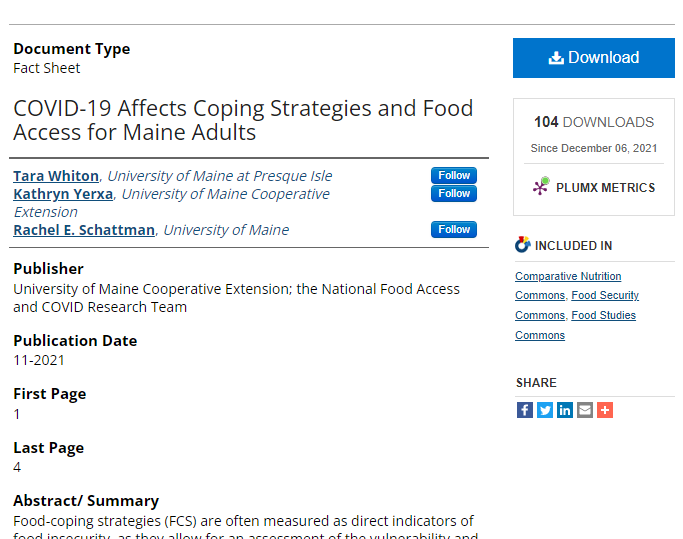In 2020, a survey of 618 Maine residents asked about food insecurity and food-coping strategies (FCS) used before and during the pandemic. Food-coping strategies include food rationing, borrowing food or money to buy food, efforts to reduce household food needs, and diet changes like switching to cheaper foods. Results showed that during the pandemic, respondents changed how they make food choices and, overall, there was an increase in the use of FCS. Most FCS reported were not risky, such as switching to cheaper goods and those that last longer. However, risky FCS also appeared to increase, such as eating expired foods—a behavior that was mostly reported by younger respondents. The authors call for more education about healthy FCS, reduction of food waste, and improving food security to decrease risky FCS utilization.

